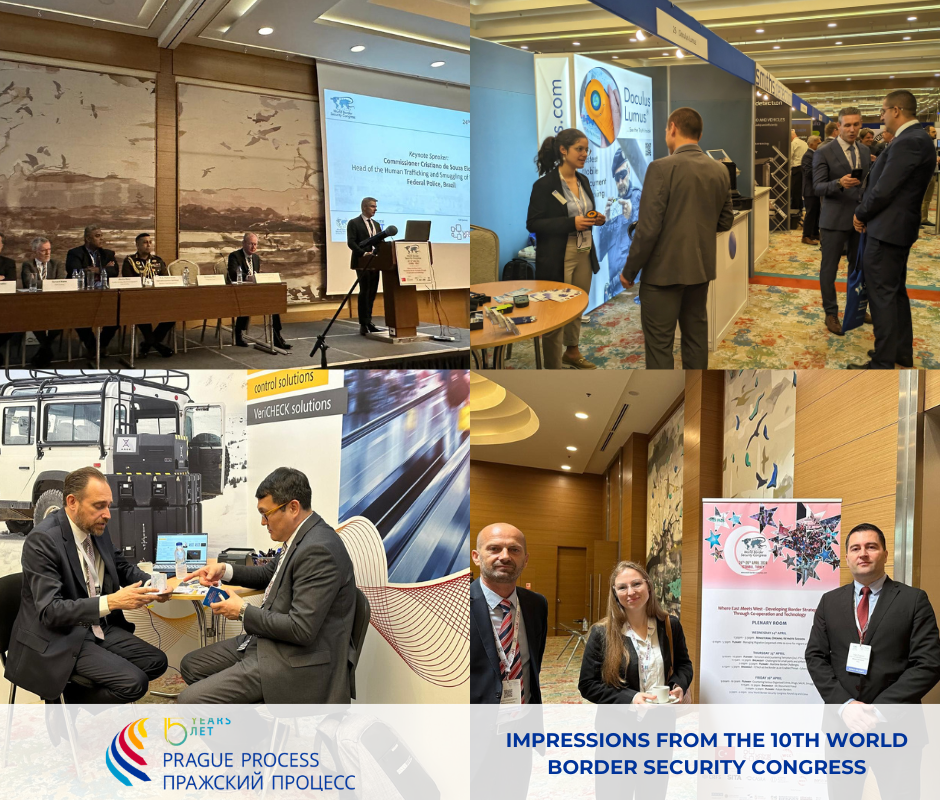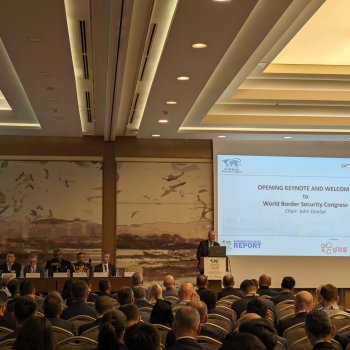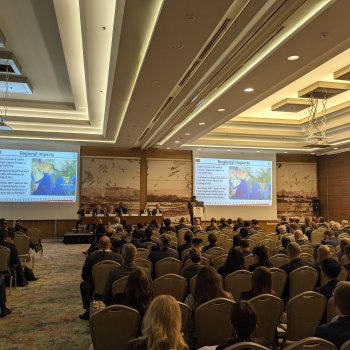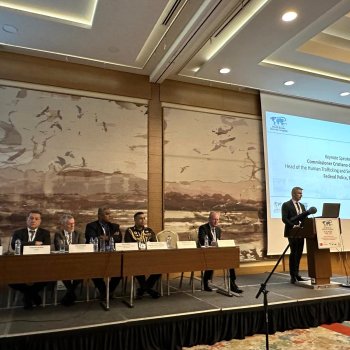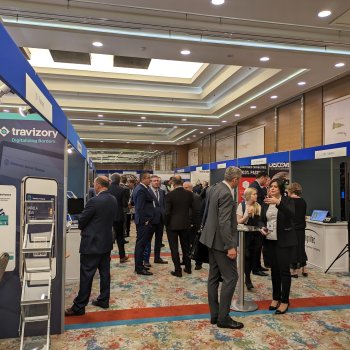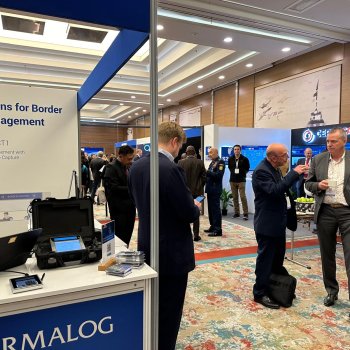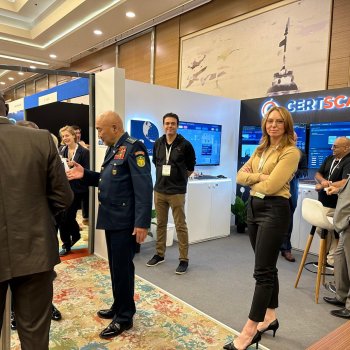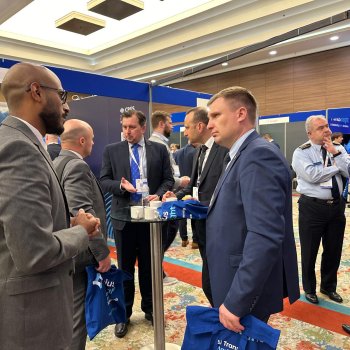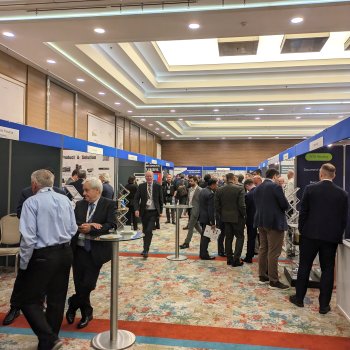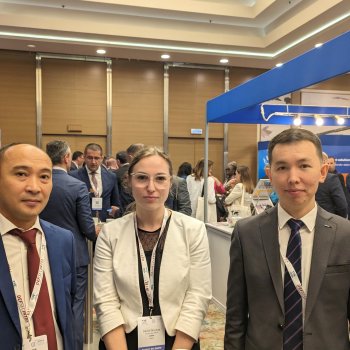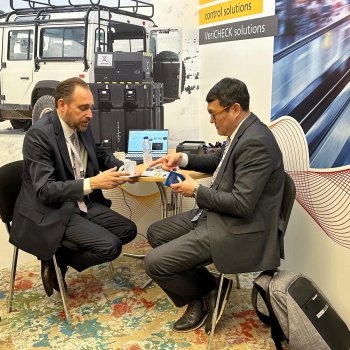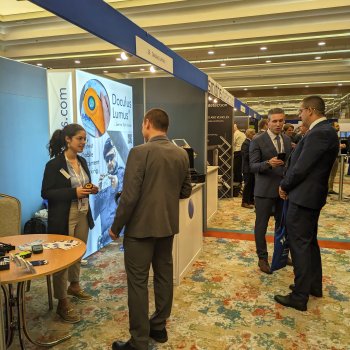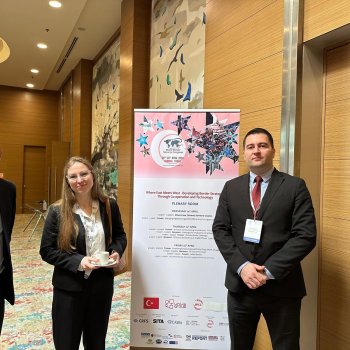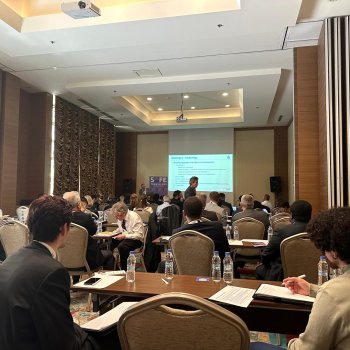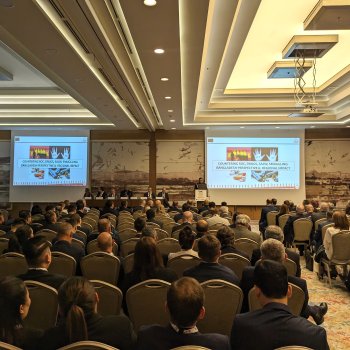On 24-26 April, representatives of eight Prague Process states attended the 10th World Border Security Congress (WBSC) in Istanbul, Türkiye. The Congress brought together over 400 participants from 60 countries including 75 speakers and 30 private sector exhibitors. The participant list further included representatives of IOM, UNODC, UNOCT/ UNCCT, OSCE ODIHR, EC, NATO, FRONTEX, and INTERPOL.
This high-level event provided a platform for senior border officials to meet, discuss and debate current and future policies and persisting challenges for ensuring safe and secure border and migration management. The presence of the private sector allowed to exchange knowledge about the newest technologies in the field.
The various ongoing migration crises provide opportunities for organized criminal networks to smuggle migrants, often exposing them to severe risks, including human trafficking. The criminal groups adapt swiftly to new circumstances, aiming to exploit vulnerabilities at borders for illicit activities. It is, therefore, vital to understand their different methodologies and foster international cooperation in combatting cross-border crime and irregular migration. Government agencies need to stay up to date with technological innovations and remain adaptable to succeed. The use and impact of artificial intelligence and digitalisation constituted a transversal topic throughout the event.
The WBSC programme featured panels dedicated to migration, migrant smuggling and THB, countering terrorism and serious organised crime, maritime border challenges as well as the future of borders. The panel on migration management highlighted both practical and academic solutions in border management, touching on the refugee crisis at the Moldovan border, the protection of vulnerable persons and the overall impact of migration flows on border management.
In addition, the breakout workshops on identity documents, document fraud and IT at the border underscored the risks arising from cybercrime and allowed for lively, more targeted discussions, the exchange of experience and policy solutions. The European Commission’s Joint Research Centre introduced the border security lab that is currently being developed. Finally, the closed agency workshops enabled discussions on operational aspects, ranging from inter-agency cooperation to information sharing and the latest modus operandi confronted.
The latest issue of the Border Security Report (November/December 2023), published by the WBSC organizers, is available here.
Subscribe to the Prague Process mailing list here in order to keep up to date with the latest developments outlined in our Quarterly Review.

